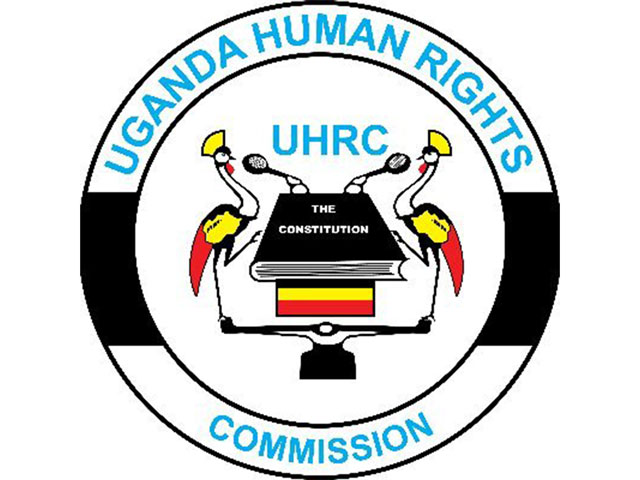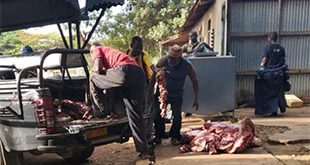
NEWS ANALYSIS | THE INDEPENDENT | The perpetual nature of the acts of torture in Uganda remains a puzzle as Uganda joins the rest of the World to mark the International Day in support of Torture survivors.
Numerous Ugandans have experienced torture despite the 1995 Constitution guaranteeing the freedom from torture, and the enactment of laws to effect the freedom.
The Prevention and Prohibition of Torture Act, 2012 Act gives effect to provisions of the Constitution prohibiting and preventing any form of torture or cruel, inhuman or degrading treatment or punishment while the Human Rights (Enforcement) Act 2019 provides for procedure of enforcing human rights as prescribed under Chapter Four of the Constitution.
Samuel Herbert Nsubuga, the Chief Executive Officer of African Center for Treatment and Rehabilitation of Torture Victims (ACTV), an organisation that offers treatment, rehabilitation and legal support to torture victims says they handle close to 1000 people annually. In 2022, they attended to 788 victims, 1,151 in 2021, 960 in 2020 and 1,070 in 2019 with security personnel pinned on majority of the cases.
Reports by the Uganda Human Rights Commission-UHRC confirm the persistence of this vice. Based on complaints filed at the Commission, security personnel from the Uganda Police Force and the Uganda People’s Defense Forces are the leading perpetrators, torturing people during arrests and while in detention facilities.
According to the most recent UHRC report, in 2022, the commission received 277 complaints related to violation of the freedom from torture, and these accounted for 36 percent of the total cases registered by the commission. The figure represents an increase, the commission having received 261 such cases in 2021. But yet still, even in 2021, the torture cases accounted for 37 percent of the total number of cases registered that year.
In 2020, the commission registered 119 cases of torture against the UPDF and 153 cases against the police. In 2019, such cases registered were 299 accounting for 35 percent of the total number registered while in 2017 a total of 306 complaints of torture related acts were registered, accounting for 33.4% of the total cases registered. In 2018, the alleged violation of the freedom from torture ranked highest at 346 complaints registered representing a 13% rise from 306 complaints registered in 2017.
Why has the vice persisted?
Crispin Kaheru, a Commissioner at UHRC attributes the persistence of the practice to three major factors; ineffective enforcement of the laws on freedom from torture and others related to the freedom, impunity among some perpetrators who perceive themselves to be above the laws, and also delays in investigations of torture cases to deliver justice to the victims and retribution to the perpetrators allowing more perpetrators to commit the crime.
On his part, Samuel Herbert Nsubuga, the Chief Executive Officer of African Center for Treatment and Rehabilitation of Torture Victims (ACTV) blames this on two factors; Uganda’s violent past and the ignorance of the security personnel about human rights and the freedom from torture.
Nsubuga says that since security is constantly recruiting, some new recruits might not know how to hand people without violating their freedom from torture. And yet, he adds, some security personnel are unaware that torture is bad because of Uganda’s past which is characterized by violence especially perpetrated by armed personnel.
But Dr Sarah Bireete, the Executive Director for Center for Constitutional Governance (CCG), says that torture is built in Uganda’s systems as a political tool, a fact that is ignored hence explaining why it has persisted over the years. To her, Uganda should appreciate this unfortunate truth if it’s to devise remedies to it.
She adds that Ugandans would seek redress through the courts of law but this too is difficult given the expensive court process which many ordinary Ugandans who fall victim of torture at the hands of security personnel cannot afford.
The Head Legal of the Criminal Investigations Directorate- CID Uganda Police Force Isaiah Igumire acknowledges that there are security personnel who torture people, but qualifies his statement by calling them errant officers whose actions are not supported by the leadership of the institution. He described their acts as criminal and unprofessional, hence committing police to continue sensitizing its own on the anti-torture laws and holding culprits of torture accountable.
Regarding delayed investigations, Igumire says that often times victims of torture do not report to police on time for it to start the investigations. Consequently, by the time police embarks on investigations to gather evidence to be used to open a case for prosecution by the Directorate of Public Prosecution, a lot of time has been lost already. Additionally, he says, the time lag gives perpetrators and victims allows chance to negotiate and frustrate the prosecution.
Continued sensitization on the freedom from torture, enforcement of the laws and enactment of the Witness Protection law to enable witnesses come out to testify have been identified as some of the solutions to deal with torture in Uganda.
The United Nations International Day in Support of Victims of Torture is an international observance held annually on 26 June to speak out against the crime of torture and to honor and support victims and survivors throughout the world.
The day was launched in 1998. This year’s celebration was held under the theme “Stop Torture, Rebuild lives of Survivors for Sustainable Development.”
******
URN
 The Independent Uganda: You get the Truth we Pay the Price
The Independent Uganda: You get the Truth we Pay the Price



